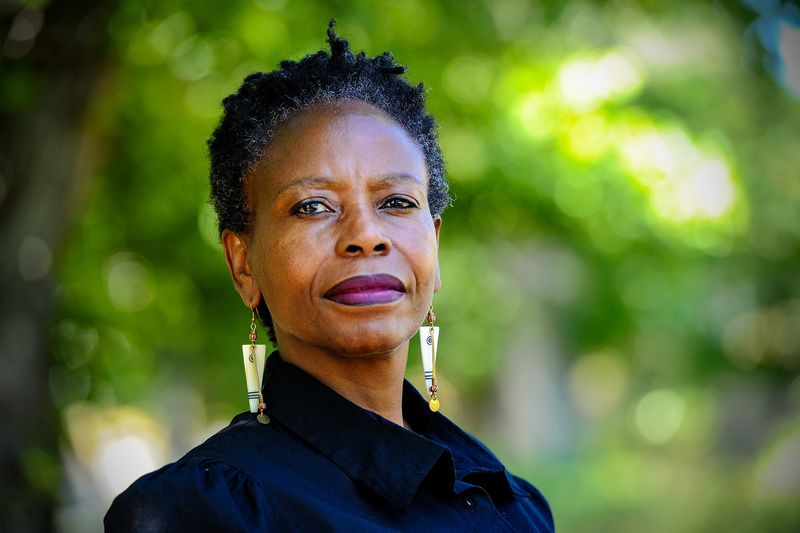Farewell to DVC for Research and Internationalisation: Professor Sue Harrison
15 January 2024 | Prof Elelwani Ramugondo
Dear colleagues and students
As previously communicated the University of Cape Town (UCT) deputy vice-chancellor (DVC) for Research and Internationalisation Professor Sue Harrison, will be taking early retirement from the university on 15 January 2024. This, after three decades of dedicated service to UCT. She will be joining the University of Queensland in Australia on a contractual basis while continuing to work actively as part of UCT’s research team in bioprocess engineering.
Professor Harrison was appointed DVC for Research and Internationalisation in May 2019, starting immediately on a fifty percent basis, then transitioning fully one hundred percent into the role on 1 August 2019. Her portfolio included advancing the research quality, quantity and impact across the university. She was responsible for enhancing UCT’s African agenda, internationalisation, research partnerships, innovation, translation of research, growing and transforming the postgraduate sector, nurturing impactful inter- and transdisciplinary research built on deep disciplines, as well as the oversight of interdisciplinary university research institutes.
Her admirable track record in management and leadership started with her taking on the headship of Chemical Engineering 25 years ago, founding the Centre for Bioprocess Engineering Research (CeBER) initially as a unit in 2001, and serving as its director for some 22 years. She also served as deputy dean: Postgraduate and Research at the Faculty of Engineering & the Built Environment for six years. She was a chemical engineering lecturer for nearly two decades, and a research chair for 12 years, relinquishing these roles to take on the role of DVC. Prior to this, she served for 29 years as an academic at UCT while holding teaching or visiting researcher positions at the University of the Western Cape, Stellenbosch University, the University of the Free State, Exeter University (UK), MIT (USA), Cambridge University (UK), University of Zambia (Zambia), and Central South University (China).
This academic giant has co-authored 258 research papers in refereed journals (165), conference proceedings (81) and book chapters (12) and supervised 142 postgraduate students to completion – 33 PhD and 109 MSc degrees, of which 65 were awarded to women and 74 to black students.
Professor Harrison has led research groupings and championed interdisciplinary research capacity as well as the role of soft-funded researchers at UCT. Her contribution to UCT’s research management has over the years, been shown through her ongoing involvement with research and postgraduate committees and working groups at the university. Her contribution to research nationally has been demonstrated through her leadership role in the nurturing of innovation and in the implementation plans for the South African bioeconomy strategy. She held the SARChI Research Chair in Bioprocess Engineering between 2008 and 2019.
Some of the highlights of her time at UCT include:
- Being part of the all-women executive academic leadership at UCT, which is rare in higher education institutions around the world, with her fundraising for large research initiatives exceeding R1 000 000 000.
- Elevating UCT’s global presence and fostering collaborative relationships while working towards equitable partnerships between the Global North and Global South.
- Embarking on a review and improvement of UCT’s research support systems and structures, taking an approach that crosscuts service providers within UCT.
- Nurturing the contribution of soft-funded academic research staff (SFARS) through putting in place the policy currently being implemented as well as research opportunities for SFARS.
- Building UCT’s research active staff, particularly at the early to mid-career academic phase and nurturing research leadership.
- Playing a pivotal role in the formation of the UCT–University of Bristol (UCT–UoB) Professorship and Fellowship Programme, a two-strand programme that aims to change the extractive, unequal way collaborative research is done between the Global North and the Global South, specifically with Africa. The shared academic exchange and collaboration will advance Africa’s place in global knowledge production to benefit the continent and the international community.
- Ensuring the timeous, safe and a phased return of students especially to laboratories and campus during the COVID-19 pandemic.
- Being instrumental in establishing the Future Water Institute and becoming its first director. Future Water sought among other things the transformation of UCT into a ‘no-drop wasted’ campus by seeking to embed a more holistic approach to water management, and assessing alternative water use opportunities on UCT’s main campuses and selecting projects that could be implemented efficiently for this purpose.
- Championing UCT’s sustainable campus project, Khusela Ikamva.
- Being awarded the national NSTF–South 32 award for Research and Engineering capacity development in 2016, as well as South Africa’s Distinguished Woman Scientist award in 2007.
- Being elected to UCT’s College of Fellows in 2015.
On behalf of the university community, I convey our sincere gratitude and appreciation to Professor Harrison for her astute leadership and immense academic contributions to this institution. She ensured that our research portfolio unleashed knowledge in, for and from Africa to demonstrably contribute to our sustainable global future.
I am sure that you join me in wishing her everything of the best as she embarks on a new adventure with new opportunities.
Sincerely
Professor Elelwani Ramugondo
Acting Vice-Chancellor
Read previous communications:
 This work is licensed under a Creative Commons Attribution-NoDerivatives 4.0 International License.
This work is licensed under a Creative Commons Attribution-NoDerivatives 4.0 International License.
Please view the republishing articles page for more information.








